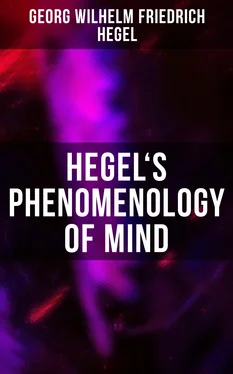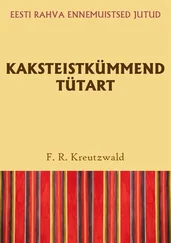Georg Wilhelm Friedrich Hegel - Hegel's Phenomenology of Mind
Здесь есть возможность читать онлайн «Georg Wilhelm Friedrich Hegel - Hegel's Phenomenology of Mind» — ознакомительный отрывок электронной книги совершенно бесплатно, а после прочтения отрывка купить полную версию. В некоторых случаях можно слушать аудио, скачать через торрент в формате fb2 и присутствует краткое содержание. Жанр: unrecognised, на английском языке. Описание произведения, (предисловие) а так же отзывы посетителей доступны на портале библиотеки ЛибКат.
- Название:Hegel's Phenomenology of Mind
- Автор:
- Жанр:
- Год:неизвестен
- ISBN:нет данных
- Рейтинг книги:4 / 5. Голосов: 1
-
Избранное:Добавить в избранное
- Отзывы:
-
Ваша оценка:
- 80
- 1
- 2
- 3
- 4
- 5
Hegel's Phenomenology of Mind: краткое содержание, описание и аннотация
Предлагаем к чтению аннотацию, описание, краткое содержание или предисловие (зависит от того, что написал сам автор книги «Hegel's Phenomenology of Mind»). Если вы не нашли необходимую информацию о книге — напишите в комментариях, мы постараемся отыскать её.
Hegel's Phenomenology of Mind — читать онлайн ознакомительный отрывок
Ниже представлен текст книги, разбитый по страницам. Система сохранения места последней прочитанной страницы, позволяет с удобством читать онлайн бесплатно книгу «Hegel's Phenomenology of Mind», без необходимости каждый раз заново искать на чём Вы остановились. Поставьте закладку, и сможете в любой момент перейти на страницу, на которой закончили чтение.
Интервал:
Закладка:
As regards philosophy in its proper and genuine sense, we find put forward without any hesitation, as an entirely sufficient equivalent for the long course of mental discipline — for that profound and fruitful process through which the human spirit attains to knowledge — the direct revelation of the divine and the healthy common sense of mankind, unconcerned with and undisciplined by any other knowledge or by proper philosophical reflection. These are held to be a good substitute for real philosophy, much in the way that chicory is lauded as a substitute for coffee. It is not a very pleasing spectacle to observe uncultivated ignorance and crudity of mind, with neither form nor taste, without the capacity to concentrate its thoughts on an abstract proposition, still less on a connected statement of such propositions, confidently proclaiming itself to be intellectual freedom and toleration, and even the inspiration of genius. This last used once upon a time, as everyone knows, to be all the vogue in the case of poetry, as it is now in philosophy. Instead of poetry, however, the efforts of this form of inspiration, when it had any sense at all, resulted in the production of trivial prose, or, if it went beyond that, it produced raving harangues. In the same way here in the case of philosophy; philosophizing by the light of nature, which thinks itself too good for conceptual thinking, and, because of the want of it, takes itself to have direct intuitive ideas and poetical thoughts — such philosophizing trades in arbitrary combinations of an imagination merely disorganized through thinking — fictitious creations that are neither fish nor flesh, neither poetry nor philosophy.
On the other hand again, when instinctive philosophy follows the more secure course prescribed by healthy common sense, it treats us to a rhetorical mélange of commonplace truths. When it is charged with the triviality of what it offers, it assures us, in reply, that the fullness and richness of its meaning lie deep down in its own heart, and that others must feel this too, since with such phrases as the “heart’s natural innocence”, “purity of conscience”, and so on, it supposes it has expressed things that are ultimate and final, to which no one can take exception, and about which nothing further can be required. But the very problem in hand was just that the best must not be left behind hidden away in secret, but be brought out of the depths and set forth in the light of day. It could quite well from the start have spared itself the trouble of bringing forward ultimate and final truths of that sort; they were long since to be found, say, in the Catechism, in popular proverbs, etc. It is an easy matter to grasp such truths in their indefinite and crooked inaccurate form, and in many cases to point out that the mind convinced of them is conscious of the very opposite truths. When it struggles to get itself out of the mental embarrassment thereby produced, it will tumble into further confusion, and possibly burst out with the assertion that in short and in fine the matter is settled, the truth is so and so, and anything else is mere “sophistry”— a password used by plain common sense against cultivated critical reason, like the phrase “visionary dreaming”, by which those ignorant of philosophy sum up its character once for all. Since the man of common sense appeals to his feeling, to an oracle within his breast, he is done with any one who does not agree. He has just to explain that he has no more to say to any one who does not find and feel the same as himself. In other words, he tramples the roots of humanity underfoot. For the nature of humanity is to impel men to agree with one another, and its very existence lies simply in the explicit realization of a community of conscious life. What is anti-human, the condition of mere animals, consists in keeping within the sphere of feeling pure and simple, and in being able to communicate only by way of feeling-states.
When a man asks for a royal road to science, no more convenient and comfortable way can be mentioned to him than to put his trust in “healthy common sense”. And for the rest, to keep abreast of the times and advance with philosophy, let him read reviews of philosophical works, and even go the length of reading the prefaces and first paragraphs of the works themselves; for the latter give the general principles on which everything turns, while the reviews along with the historical notice provide over and above the critical judgment and appreciation, which, being a judgment passed on the work, goes farther than the work that is judged. This common way a man can take in his dressing-gown. But spiritual elation in the eternal, the sacred, the infinite, moves along the highway of truth in the robes of the high priests road that, from the first, is itself immediate being in its innermost, the inspiration of profound and original ideas and flashes of elevated thought. All the same, those depths do not yet reveal the well-spring of inner reality; nor, again, are these sky-rockets the empyrean. True thoughts and scientific insight can only be won by the labour of the notion. Conceptions alone can produce universality in the knowing process. This universality is critically developed and completely finished knowledge. It is not the common indefiniteness and inadequacy of ordinary intelligence. Nor, again, is it that extraordinary kind of universality where the powers and potencies of reason are spoiled and ruined by genius through indolence and self-conceit. It is truth which has successfully reached its own inherent native form. It is this universality which is capable of being the property of every self-conscious reason.
Since I have taken the self-development of the notion to be the medium wherein science really exists, and since in those respects to which I have drawn attention, as well as in others, current ideas about the nature of truth and the shape it assumes deviate from my view, and indeed are quite opposed to my position, the consideration of this divergence of view does not seem to promise well for a favourable reception of an attempt to expound the system of science in this sense. In the meantime, I may call to mind that while e.g. the supreme merit of Plato’s philosophy has sometimes been held to consist in his myths which are scientifically valueless, there have also been times, spoken of even as times of mere sentimental enthusiasm, when the Aristotelian philosophy has been respected on account of its speculative depth of insight, and when the Parmenides of Plato — perhaps the greatest literary product of ancient dialectic — has been taken to be the positive expression of the divine life, the unveiling and disclosing of its inmost truth. I may reflect, too, that notwithstanding much cloudy obscurity which was the product of ecstasy, this misunderstood ecstasy was in point of fact meant to be nothing else than the activity of the pure notion; furthermore, that what is best in the philosophy of our time takes its value to lie in its scientific character; and that, even though others take a different view, it is only in virtue of its scientific character that recent philosophy really gains validity and acceptance. Thus, then, I may hope too that this attempt to justify the claim of science to be a conceptual process, and systematically to develop and present science in this its own peculiar medium, will manage to make a way for itself by the inherent truth of the result accomplished. We may rest assured that it is the nature of truth to force its way to recognition when the time comes, and that it only appears when its time has come, and hence never appears too soon, and never finds a public that is not ripe to receive it. And, further, we may be sure that the individual thinker requires this result to take place, in order to give him confidence in regard to what is no more as yet than a matter for himself singly and alone, and in order to find his assurance, which in the first instance merely belongs to a particular individual, realized as something universal. In this connection, however, it is very often necessary to distinguish the public from those who take upon themselves to be its representatives and spokesmen. The public takes up an attitude in many respects quite different from the latter, indeed, even opposed to them. Whereas the public good-naturedly and generously will rather take the blame upon itself when a philosophical work is not quite acceptable or intelligible to it, these “representatives”, on the contrary, convinced of their own competence, put all the blame on the authors. The influence of the work on the public is more silent than the action of those “representatives”, who are like the dead burying their dead. While the general level of insight at the present time is in the main more highly cultivated, its curiosity more quickened and alert, and its judgment more swiftly made up and pronounced, so that the feet of those who will carry you out are already at the door: at the same time we have often to distinguish from all this the slower and more gradual effect which rectifies the direction of attention caught and compelled by imposing assurances, corrects, too, contemptuous censure, and after a little provides a contemporary audience for one part, while another after a temporary vogue finds no audience with posterity any longer.
Читать дальшеИнтервал:
Закладка:
Похожие книги на «Hegel's Phenomenology of Mind»
Представляем Вашему вниманию похожие книги на «Hegel's Phenomenology of Mind» списком для выбора. Мы отобрали схожую по названию и смыслу литературу в надежде предоставить читателям больше вариантов отыскать новые, интересные, ещё непрочитанные произведения.
Обсуждение, отзывы о книге «Hegel's Phenomenology of Mind» и просто собственные мнения читателей. Оставьте ваши комментарии, напишите, что Вы думаете о произведении, его смысле или главных героях. Укажите что конкретно понравилось, а что нет, и почему Вы так считаете.












